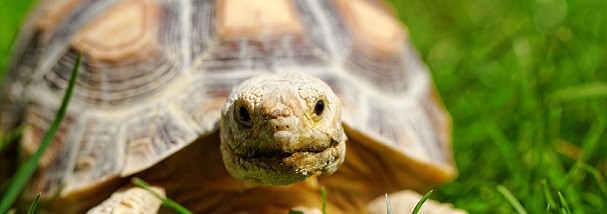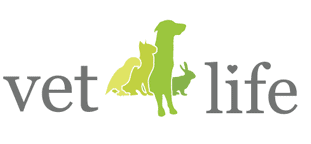 Tortoises are herbivores and therefore eat plant material and need a high percentage of fibre in their diets. This not only acts as a bulking agent, it also helps maintain healthy gut motility, aiding fermentation, which is vital for vitamin/mineral absorption. We recommend the majority of their diet should be composed of vegetable matter of a leafy nature such as dandelions, kale, watercress, flat-leaved parsley, chicory and bok-choy.
Tortoises are herbivores and therefore eat plant material and need a high percentage of fibre in their diets. This not only acts as a bulking agent, it also helps maintain healthy gut motility, aiding fermentation, which is vital for vitamin/mineral absorption. We recommend the majority of their diet should be composed of vegetable matter of a leafy nature such as dandelions, kale, watercress, flat-leaved parsley, chicory and bok-choy.
Take care with some vegetables such as cauliflower and kale. These iodine-binding plants can cause iodine deficiencies if fed in large volumes. Low iodine levels can cause the development of goitre, leading to many health complications such as retarded growth and fluid retention within the limbs. Neurological signs have also been reported.
Fruits such as apples and pears can be offered occasionally as a source of fibre. Care must be taken with sugary fruits like bananas, as these can stick to the inside the mouth predisposing to secondary infection.
Sometimes, food may need to be chopped into smaller, more manageable pieces for juvenile tortoises, whereas adults can have food items offered in larger pieces.
Calcium supplements
Tortoises should be provided with a suitable calcium and mineral supplement. Literature varies, but we advise that their foods are dusted with a supplement two or three times a week for adults and daily for juveniles. There are many calcium supplements available. The company Vetark provides a powder-form calcium supplement, Nutrobal, which should be lightly dusted over each meal. Zolcal D is a liquid veterinary medicinal formulation of calcium and vitamin D3 which can be given via drinking water. Over supplementation can occur so care must be taken not to exceed daily allowance.
We advise a calcium:phosphorus ratio of 2:1 but this may change depending on the tortoise’s life stage, as different stages have varied calcium requirements.
Small pieces of crushed cuttlefish can be offered to increase their calcium intake. Juvenile tortoises naturally forage and eat white objects in the search for calcium, so care must be taken that they do not eat their bedding lining the cage.
Dietary imbalances
The most common deficiencies seen in tortoises are in calcium and vitamin D3. Be careful not to over-feed foods with excessive levels of oxalates as these compounds bind to calcium and stop it being absorbed within the body. Foods high in oxalates include fruit, lettuce and celery. These foods are also high in phosphorus which works together with calcium within the body. Excess phosphorus stimulates the parathyroid gland, which produces more parathyroid hormone which mobilises calcium from the bones into the bloodstream. This causes poor bone mineralisation leading to metabolic bone disease.
Contact us by filling out the form on the contact us page.


